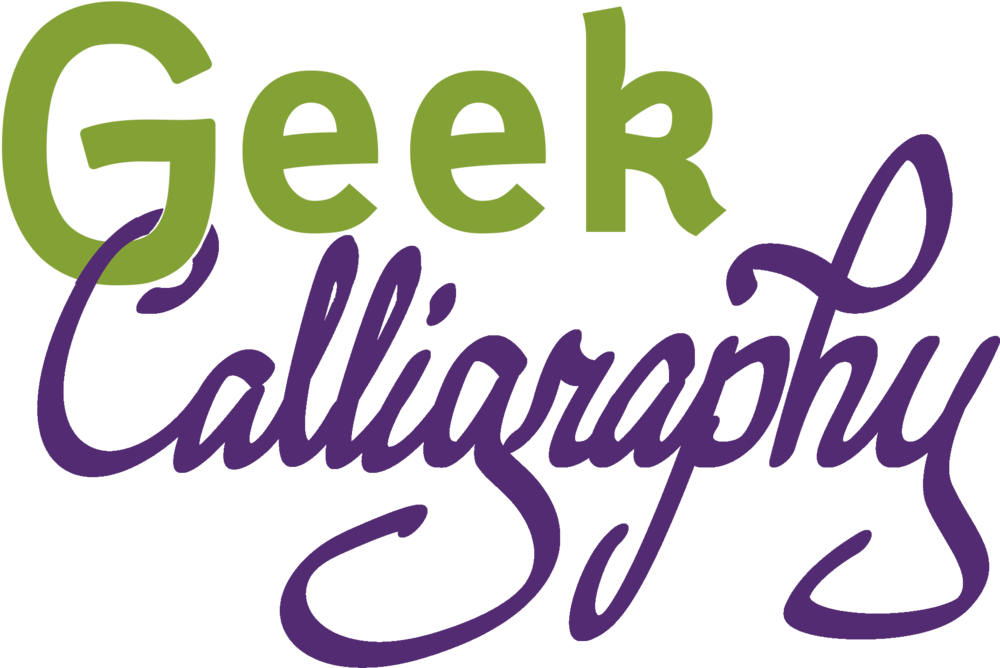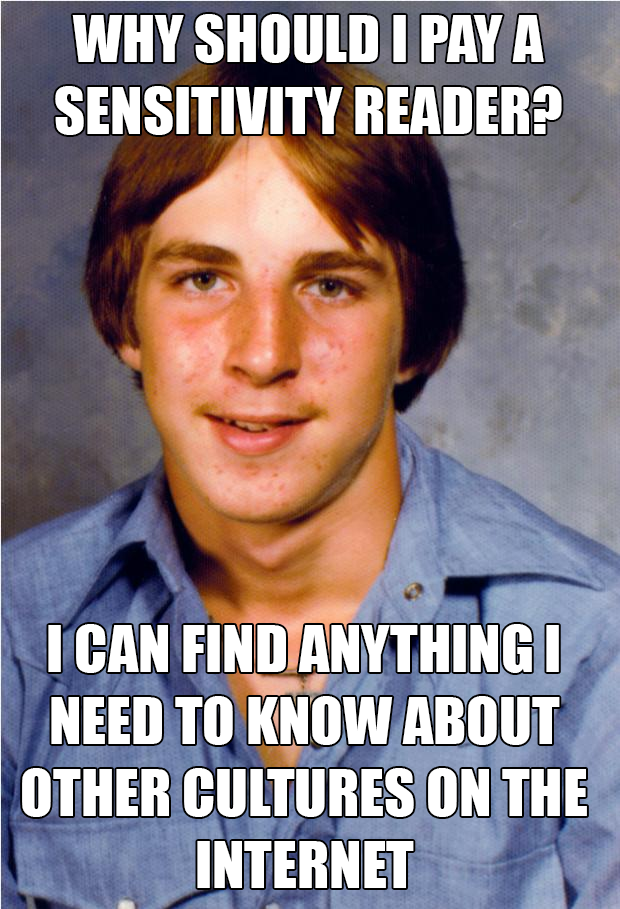by Ariela
Old Economy Steve longs for the days when he could avoid people telling him how offensive his views are.
Sensitivity readers have been quite the hot topic in some parts of teh interwebs lately.
What is a sensitivity checker? When a creative type, in my case an artist, wants to use cultural elements from a culture not their own, you employ someone from that culture to act as an expert guide, telling you things that are important to know, and giving feedback that should help you to portray the culture in question accurately and in a way that is not offensive. This can cover anything from preventing embarrassing errors like those from our Jewish Stock Photography Fail Blog, to the horribly offensive error of making Nazis the good guys in a Holocaust novel supposedly told from the point of view of a Jewish girl (we won't link to that book, but here is a scathing review by Katherine Locke).
In some ways, it is no different than consulting any other expert so you don't make ignorant mistakes, but here the stakes aren't just your own embarrassment but the possibility of perpetuating oppression of real people.
I recently had my first serious sensitivity check. Our product release next week will include a picture of a keris, which is a Malaysian dagger with serious cultural significance. That's the sort of thing you don't want to just assume you can just chuck into a piece of art when you don't know anything about the culture surrounding it. Thanks to the wonders of Twitter, we were connected to Jia-Ling Pan, who was incredibly helpful. We highly recommend her, if you need a sensitivity check for anything from Malaysia. (Let us know if you would like to be put in touch; she said she would prefer a referral than a link.)
Here are a few basic takeaways from the process.
1. Pay them.
This should go without saying, but alas, it needs to be said. Giving someone a crash course in the intricacies of one's culture isn't a privilege, it is work. Listening to and answering questions, many of which may be ignorant and even offensive is hard work. Giving constructive feedback is work.
This is true for art and even more true for reading a manuscript, which takes a heck of a lot longer.
Pay them. If one cannot afford to pay someone from the culture one is writing/singing/art-ing/movie-making about to do a sensitivity check, then one doesn't get to play in that sandbox.
This doesn't mean you don't get to create, just that this particular avenue is not available. Lack of money sucks. It sucks for you as a creator, but it also sucks for people whose culture gets trampled over insensitively and are then asked to help someone else make sure they're doing it right for free. Sensitivity checkers need to be paid.
2. Listen to what they have to say, and give them space to talk.
You employ a sensitivity checker because they know things you don't. Sometimes that means answers to your questions, but other times that means telling you the answers to questions you didn't even know should be asked. Give your sensitivity checker some unstructured space to talk rather than framing everything within a Q&A. Your questions are shaped by your own assumptions after all, and they may not translate into the culture you are trying to learn about. You might even wind up getting more material out of it in ways you didn't anticipate.
3. Accept what they have to say.
Sometimes a sensitivity checker will say things you don't want to hear. You have to be willing to go into the check alert to the possibility that you might have to rework part of your project, a lot of your project, or even scrap your project entirely. The earlier you ask, the less likely this will be, so check early and often! Though even that is not a guarantee.
It's never easy to hear negative feedback, particularly when it means losing a lot of work. If you are only interested in affirmation and will come up with reasons why you don't need to take the negative feedback too, don't bother to have a check done at all.
Mary Robinette Kowal has an excellent blog post about this. Please check it out.
4. No Group is Homogenous.
As in any group, different people will react to the same thing in different ways. Just because your sensitivity checker reads things one way doesn't mean that other people won't have a different take. Having more than one sensitivity checker is a good idea, particularly if the source material is emotionally significant or you are using a lot of it. And even if all your readers say it's fine, there's no guarantee that someone else will not be offended. Which brings us to:
5. Your creation is your responsibility.
If someone else is offended by the thing you made, even if you had a sensitivity checker, the responsibility is yours. It is not the job of a sensitivity checker to tell you how to do something so that you cannot be criticized for it; they're just there to give your their own read, and possibly make a best guess at how others may feel. The mere fact that you hired a sensitivity checker is not a shield against criticism, and if the work offends someone, then it is not the sensitivity checker's fault. It is on you to own up to any damage caused and decide how to proceed, apologize, make amends, fix it, etc.
Coda: Sensitivity checking is not a substitute for #OwnVoices
#OwnVoices is a campaign to lift up the work of people in various marginalized identities telling their own stories. It is not enough to have white people telling stories centering People of Color, or straight people telling stories about LGB people, or cisgendered people telling stories about trans people. No matter how skilled or well-intentioned the creator, they will not get it all. People have a right to portray themselves. And we should support them when they do by patronizing their work.
That said, I am very much not in the camp that says it is never okay for someone to portray a person outside their own identity. That leads to other kinds of erasure and normalizes the idea of homogenous societies. But when we do paint pictures of other people, with words or brushes or songs or cinema, we need to make sure we do it with care and respect. That's where sensitivity checkers are so important.
Find a Sensitivity Checker for Your Own Work
There are lots of people out there who do this work. Writing in the Margins is a great directory if you are looking for someone to keep you from accidentally putting your foot in it.

